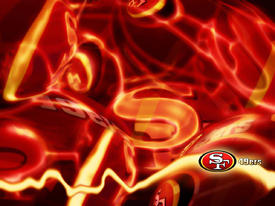We are pleased to announce that as of March 4, 2025, an updated Rich Text Editor has been introduced in the MyFitnessPal Community. To learn more about the changes, please click here. We look forward to sharing this new feature with you!
Does anyone know the scientific reason why....

LaraRN
Posts: 128 Member
It is so much harder and slower to lose weight when you have a smaller amount to lose. In my case (20lbs)
0
Replies
-
Bump for the science-based answer, because I sort of know why, but I suck at science.0
-
I'm interested in knowing this too..so bump.0
-
Scientifically as your weight goes down, you metabolic rate does too, so if you don't adjust for calorie deficit, then loss will be slower. Also at a lighter weight, calories burned through exercise will be less, so that also has to be accounted for too. If one has been doing the same type of exercise long enough (cardio on an elliptical for example) as you weight lowers, your body becomes very efficient at adapting to burning the least amount of calories for that routine. So even just changing to a harder intensity and/or exercise should help. And lastly, from my experience with clients, they tend not to be as adamant about weighing and measuring as they first did when they started. Foods they miss have a tendency to return to their lifestyle. Not that there is anything wrong with that.
A.C.E. Certified Personal/Group FitnessTrainer
IDEA Fitness member
Kickboxing Certified Instructor
Been in fitness for 30 years and have studied kinesiology and nutrition0 -
I don't know the biochemistry of it, but from an evolutionary perspective, we're built to survive the palaeolithic era. We're not built to win beauty contests (beauty comes into it because of selection of mates, but it's more a case that what we find beautiful is a fit strong body that's more likely to survive, rather than the human body evolving to match what we find beautiful)
body fat is essential to survival. In the palaeolithic era, food acquisition was hit and miss, and people had to be able to withstand food shortages. Body fat was an essential store for that, i.e. when you don't get enough to eat, body fat will give your body the energy it needs. However that's not your body's only source of energy in a food shortage - muscle is costly to maintain, as in muscle cells use a lot more energy (calories) than fat cells, even when they're doing nothing. So in a food shortage, the body will also burn lean muscle for energy to make the fat stores last longer. When your fat stores run out you die, basically. The less fat you have, the more your body's going to want to protect what fat you have left, because your survival depends on it. So there's a greater risk of losing lean muscle mass. The result of loss of muscle mass is that the metabolism slows, because your body's spending less energy (calories) keeping you alive as there's less muscle to maintain. From a survival point of view this is great, you can live on less food and preserve your fat stores for longer. But from a modern perspective, i.e. trying to lose the last few lbs of fat to look good, it's not what you want at all because you have to eat even less to continue to lose weight, while you still have more fat than you want, but it's what happens, because we're the product of millions of years of natural selection in favour of surviving food shortages. If our palaeolithic ancestors' bodies worked the way we want our bodies to (burning off fat while preserving or even building muscle) they would have died the first time they encountered a food shortage. So our bodies don't work like that either.
This is why it's essential to look after your lean mass... there are things you can do to protect it and ensure that you lose just fat (or mainly fat, because even if you do everything right you'll have some loss of lean mass when you get to the low end of the healthy body fat percentage range)........... from an evolutionary perspective, your body will maintain muscle that's being used regularly for longer (i.e. unused muscle gets burned off early on in a food shortage, but used muscle is protected) because if our ancestors did exercise it was for obtaining food, and if they lost the ability to obtain food then they'd die. So as far as your body's concerned, exercise = necessary for survival = will protect the muscles you use regularly (up to a point, in a severe food shortage you'll lose them anyway) - so exercise helps prevent loss of lean body mass, and exercise that works the muscles hardest, i.e. weight lifting or similar, will be the best for protecting lean muscle mass. Then you need a SMALL deficit so you get fat loss, but slow and conservative fat loss, so you're just losing fat. From an evolutionary point of view, that's imitating a mild food shortage where you're succeeding at hunting. Your body maintains the muscles you use, and slowly uses fat stores to make up the deficit.
anyway, like I said, not a biochemistry explanation (I can't remember biochem much from uni) but the evolutionary explanation explains why our body works the way it does.0 -
I don't know the biochemistry of it, but from an evolutionary perspective, we're built to survive the palaeolithic era. We're not built to win beauty contests (beauty comes into it because of selection of mates, but it's more a case that what we find beautiful is a fit strong body that's more likely to survive, rather than the human body evolving to match what we find beautiful)
body fat is essential to survival. In the palaeolithic era, food acquisition was hit and miss, and people had to be able to withstand food shortages. Body fat was an essential store for that, i.e. when you don't get enough to eat, body fat will give your body the energy it needs. However that's not your body's only source of energy in a food shortage - muscle is costly to maintain, as in muscle cells use a lot more energy (calories) than fat cells, even when they're doing nothing. So in a food shortage, the body will also burn lean muscle for energy to make the fat stores last longer. When your fat stores run out you die, basically. The less fat you have, the more your body's going to want to protect what fat you have left, because your survival depends on it. So there's a greater risk of losing lean muscle mass. The result of loss of muscle mass is that the metabolism slows, because your body's spending less energy (calories) keeping you alive as there's less muscle to maintain. From a survival point of view this is great, you can live on less food and preserve your fat stores for longer. But from a modern perspective, i.e. trying to lose the last few lbs of fat to look good, it's not what you want at all because you have to eat even less to continue to lose weight, while you still have more fat than you want, but it's what happens, because we're the product of millions of years of natural selection in favour of surviving food shortages. If our palaeolithic ancestors' bodies worked the way we want our bodies to (burning off fat while preserving or even building muscle) they would have died the first time they encountered a food shortage. So our bodies don't work like that either.
This is why it's essential to look after your lean mass... there are things you can do to protect it and ensure that you lose just fat (or mainly fat, because even if you do everything right you'll have some loss of lean mass when you get to the low end of the healthy body fat percentage range)........... from an evolutionary perspective, your body will maintain muscle that's being used regularly for longer (i.e. unused muscle gets burned off early on in a food shortage, but used muscle is protected) because if our ancestors did exercise it was for obtaining food, and if they lost the ability to obtain food then they'd die. So as far as your body's concerned, exercise = necessary for survival = will protect the muscles you use regularly (up to a point, in a severe food shortage you'll lose them anyway) - so exercise helps prevent loss of lean body mass, and exercise that works the muscles hardest, i.e. weight lifting or similar, will be the best for protecting lean muscle mass. Then you need a SMALL deficit so you get fat loss, but slow and conservative fat loss, so you're just losing fat. From an evolutionary point of view, that's imitating a mild food shortage where you're succeeding at hunting. Your body maintains the muscles you use, and slowly uses fat stores to make up the deficit.
anyway, like I said, not a biochemistry explanation (I can't remember biochem much from uni) but the evolutionary explanation explains why our body works the way it does. this 0
this 0 -
It is so much harder and slower to lose weight when you have a smaller amount to lose. In my case (20lbs)
With less fat stores, the caloric deficit you can safely sustain is smaller.
But the real answer is that people think in absolute numbers while biology works on relative numbers. IE, it's still the same amount of effort to lose (e.g.) 10% of your body fat, but when you only have a little bit of fat left, that 10% represents a smaller number on the scale, so it feels smaller, because all your mind sees is the absolute number on the scale, not the percentage lost.0 -
Thank you for the replies!!0
-
20lbs...isn't a small amount if your judgement about your ideal weight is correct...0
-
Is this a thing? Because I never experienced it when I was losing weight. I lost all my weight pretty steadily.0
-
have a look at this http://evidencemag.com/slow-fat-loss/0
-
Is this a thing? Because I never experienced it when I was losing weight. I lost all my weight pretty steadily.
I did too, but I think it's because we didn't have a ton of weight to lose in the first place. Someone that has say, 100 pounds to lose, can and will likely drop greater amounts of weight in the beginning than they will towards the end.0 -
With less fat stores, the caloric deficit you can safely sustain is smaller.
But the real answer is that people think in absolute numbers while biology works on relative numbers. IE, it's still the same amount of effort to lose (e.g.) 10% of your body fat, but when you only have a little bit of fat left, that 10% represents a smaller number on the scale, so it feels smaller, because all your mind sees is the absolute number on the scale, not the percentage lost.
This is what I think. I am small, short and older. I should weigh 100-105 lbs. the last 5 lbs is a killer!! A lot less per wk as my maintenance calories is 1096!!! Try to lose 3500 calories to lose a lb on that maintenance cals. U cannot exercise all this off!!!0 -
I think it mostly has to do with measurement error. People trained to count calories and then tested on it miss about 25% of them, in lab tests. So if you have 50 lbs. to lose and are aiming to lose 2 lbs a week by eating at 1500 calories a day but you're really eating at 1875 (1500 x 1.25), you may lose for a while. But when you get down to where you only burn 1900 a day and are eating 1875 (thinking you're eating 1500), you don't lose anymore. You might then decide to reduce down to 1400, but really be eating 1750 and you still will lose at a snail's pace. To lose a pound a week, you'd need to *think* you've reduced down to 1120, at your new lower weight, because only then would you really be reduced down to 1400 and have that 500 per day deficit.
That's one reason it's generally considered safe to AIM FOR up to 2 lbs/week loss, or 1000 calorie deficit per day, at any weight.0 -
The human body can only utilize so much fat per day for energy, as fat oxidation is a very slow process, compared to other energy systems in the body. I believe the number is roughly 30 calories per pound of fat per day. There's also the issue of mobilization, when you have a large amount of body fat, storage tends to be all over, and mobilization is relatively easy, as the body can pretty much grab from anywhere. When you have less fat, the fat is stored in specific areas (based on individual genetics) which can make it harder for the body to mobilize the fat for oxidation, which also slows down overall fat burning, leading to slower weight loss.
And then there's the inherent inaccuracy of calories in general. BMR, TDEE, Exercise calories are all rough estimates (as nobody lives inside a calorimeter 24 hours a day) and food labels are also only rough estimates (counts can be off by as much as 20%.)0 -
Probably depends quite a bit on your final goal and how much lean body mass you have. For the same gender, with the same amount of LBM (and let's specify same muscle/bone/water/etc ratios), I would expect the last 5 lbs to drop easier from a person with a higher %BF.
Ex:
woman A, 90 lbs LBM, final goal 125 lbs.
woman B, 90 lbs LBM, final goal 115 lbs.
Woman B has a smaller possible 'healthy' deficit and should lose the last couple of pounds slower than woman B. Or so I would think.
I know that's why I've slowed down - I'm still losing at the expected rate for what I'm eating vs TDEE, so my logging must be OK (ignoring the holidays :laugh:). I just can't drop those calories enough to keep losing 1 lb per wk and be healthy and sustainable and not hungry - I'd need to be around 1100 cals to manage it.0 -
Is this a thing? Because I never experienced it when I was losing weight. I lost all my weight pretty steadily.
That is wonderful! I was expecting the same results but I have been in maintenance for a year and still have 20 more pounds to go. Don't want to eat less and not able to do harder exercises, so its my fault if I dont lose the other 20. Its not like it was 40 years ago when I could lose with the same amount of deficit till I lost what I wanted to lose.0 -
Scientifically as your weight goes down, you metabolic rate does too, so if you don't adjust for calorie deficit, then loss will be slower. Also at a lighter weight, calories burned through exercise will be less, so that also has to be accounted for too. If one has been doing the same type of exercise long enough (cardio on an elliptical for example) as you weight lowers, your body becomes very efficient at adapting to burning the least amount of calories for that routine. So even just changing to a harder intensity and/or exercise should help. And lastly, from my experience with clients, they tend not to be as adamant about weighing and measuring as they first did when they started. Foods they miss have a tendency to return to their lifestyle. Not that there is anything wrong with that.
A.C.E. Certified Personal/Group FitnessTrainer
IDEA Fitness member
Kickboxing Certified Instructor
Been in fitness for 30 years and have studied kinesiology and nutrition
I always look forward to your repies0 -
Scientifically as your weight goes down, you metabolic rate does too, so if you don't adjust for calorie deficit, then loss will be slower. Also at a lighter weight, calories burned through exercise will be less, so that also has to be accounted for too. If one has been doing the same type of exercise long enough (cardio on an elliptical for example) as you weight lowers, your body becomes very efficient at adapting to burning the least amount of calories for that routine. So even just changing to a harder intensity and/or exercise should help. And lastly, from my experience with clients, they tend not to be as adamant about weighing and measuring as they first did when they started. Foods they miss have a tendency to return to their lifestyle. Not that there is anything wrong with that.
A.C.E. Certified Personal/Group FitnessTrainer
IDEA Fitness member
Kickboxing Certified Instructor
Been in fitness for 30 years and have studied kinesiology and nutrition
Nice! Great info.0
This discussion has been closed.
Categories
- All Categories
- 1.4M Health, Wellness and Goals
- 394.4K Introduce Yourself
- 44K Getting Started
- 260.5K Health and Weight Loss
- 175.6K Food and Nutrition
- 47.5K Recipes
- 232.3K Fitness and Exercise
- 444 Sleep, Mindfulness and Overall Wellness
- 6.4K Goal: Maintaining Weight
- 8.6K Goal: Gaining Weight and Body Building
- 153.1K Motivation and Support
- 8.1K Challenges
- 1.3K Debate Club
- 96.4K Chit-Chat
- 2.5K Fun and Games
- 4K MyFitnessPal Information
- 16 News and Announcements
- 934 Feature Suggestions and Ideas
- 2.3K MyFitnessPal Tech Support Questions














